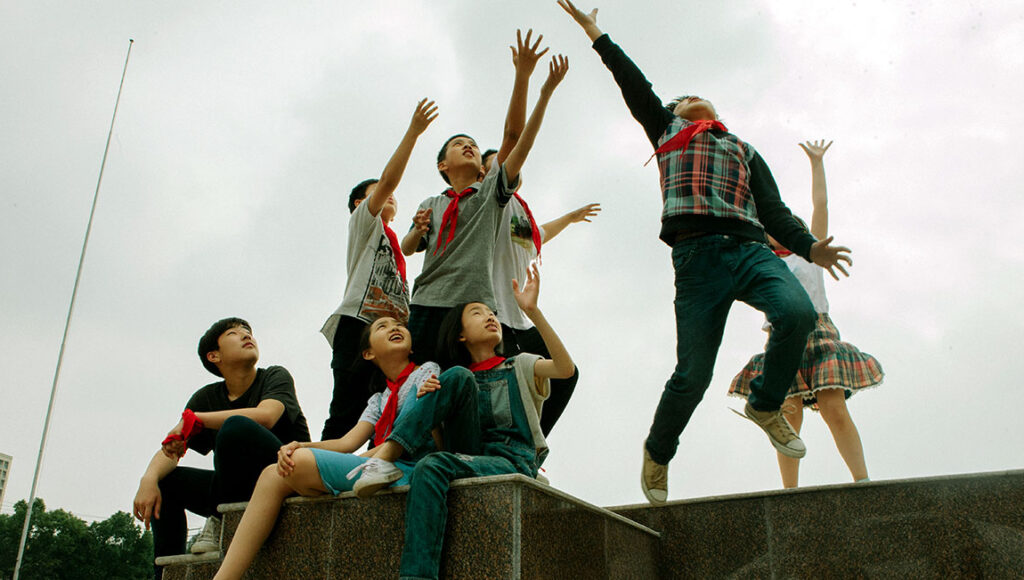Suburban Birds opens with an iris shot, a formal gesture that likens it to Feng Xiaogang’s recent I Am Not Madame Bovary. Quickly, Qiu Sheng’s film reveals this to be the POV of a land surveyor looking through his theodolite. In its first half, the film is composed mostly of long takes, with constant, horizontal and lateral movements, and zooms, as the camera reacts to characters arriving, leaving, or pointing at something — naturally reminiscent of South Korean filmmaker Hong Sang-soo, especially those zooms. Qiu, a first-time director, does a commendable job precisely controlling the visual field of his film, while his narrative peels back layers of a story that revolves around an investigation of sinking terrain, and the evacuation that the problem causes.
In this first half, the totalizing effect of the camera captivates the viewer when the plot doesn’t — but in the middle, things shift. A character starts reading a diary written by a child, and we see that story play-out. A group of school children go on outdoor excursions, chat amongst each other, and tentatively explore their romantic inclinations. Sadly, in this section of the film, the formal qualities of Suburban Birds aren’t nearly as jarring, nor exciting. Though even here, there’s something to the accomplishment of Qiu’s work with child actors, which resonates with a realism akin to some of Hirokazu Kore-eda’s films. As things continue to meander, Qiu’s ambitions expanding with each new passage of his film, these parts don’t quite add-up. Individual moments are clever and amusing, like birds singing referring back to an alarm on a smartphone, or the way the children ironically belt “We’re the Communist Little League of China.” But Suburban Birds is a bit too derivative to be wholly exciting in its own right.
Published as part of New Directors/New Films 2019 | Dispatch 2.


Comments are closed.